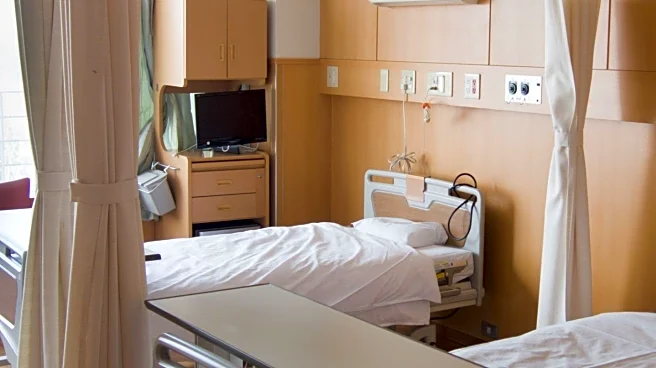What's Happening?
Two years after the October 7 Hamas attacks, Hadassah Medical Center continues to treat soldiers and civilians suffering from injuries sustained during the conflict. Dr. Sheer Shabat Ben-Yehuda, a senior
resident in rehabilitation, highlighted the ongoing challenges faced by patients dealing with physical limitations, emotional distress, and chronic pain. The Hadassah team, which moved to the Gandel Rehabilitation Center in 2024, has expanded its capacity and services, including dog therapy, acupuncture, and yoga. Dr. Yoram Weil, director of the Orthopedic Trauma Unit, emphasized the center's success in saving limbs, attributing it to new 3D printing technologies and collaboration with rehabilitation teams.
Why It's Important?
The ongoing rehabilitation efforts at Hadassah Medical Center underscore the long-term impact of war on individuals and healthcare systems. The center's ability to adapt and expand its services highlights the importance of comprehensive care in recovery. The use of advanced technologies like 3D printing in medical treatments represents a significant advancement in healthcare, potentially reducing amputation rates and improving patient outcomes. This development is crucial for the medical community and patients, offering hope and improved quality of life for those affected by war injuries.
What's Next?
Hadassah Medical Center plans to continue its rehabilitation efforts, focusing on innovative treatments and comprehensive care. The center's expansion and adaptation to new technologies may serve as a model for other medical institutions dealing with similar challenges. The ongoing support for patients, including therapy and social services, will remain a priority as the center aims to improve recovery outcomes and reintegrate patients into society.
Beyond the Headlines
The story of resilience and recovery at Hadassah Medical Center highlights the broader implications of war on healthcare systems and the need for continuous innovation in medical treatments. The emotional and psychological support provided to patients and their families is a critical component of the recovery process, emphasizing the holistic approach required in modern healthcare.









